Chagga Life Uncovered
Coffee, Waterfalls & Ancestral Wisdom
Step into Chagga land
..where the air smells of fresh coffee and banana leaves, waterfalls thunder through green valleys, and every smile comes with a story. Spend a day harvesting Arabica cherries, tasting mbege, sharing meals in a family home, and exploring the bustling Kiboroloni or Mbuyuni Market. This isn’t just a tour – it’s living, laughing, and eating like a local in the foothills of Kilimanjaro.
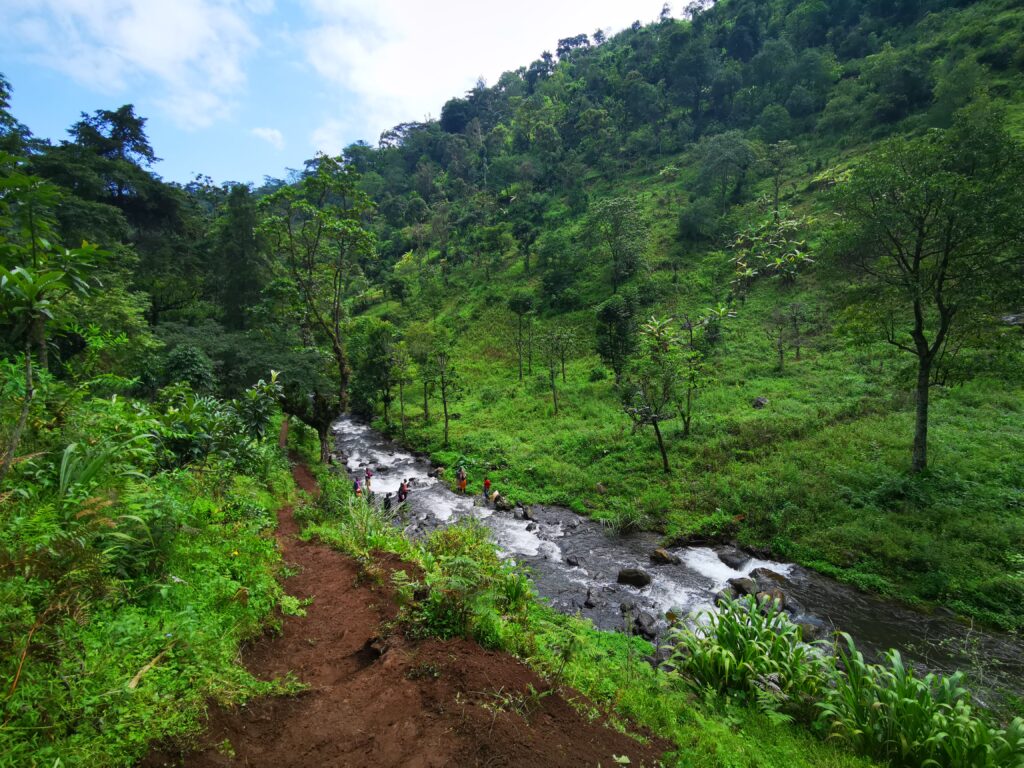
A Day in Chagga Land
Coffee, Culture & the Call of the Waterfalls
The first light of day spills over Mount Kilimanjaro, brushing its snow-capped peak in gold. You stand at the edge of a Chagga village, where the air smells of wet earth, ripe bananas, and woodsmoke curling from kitchen fires. The ground beneath your feet is rich volcanic soil – brown, soft, and alive. Banana trees sway gently, hiding coffee bushes beneath their green canopy.
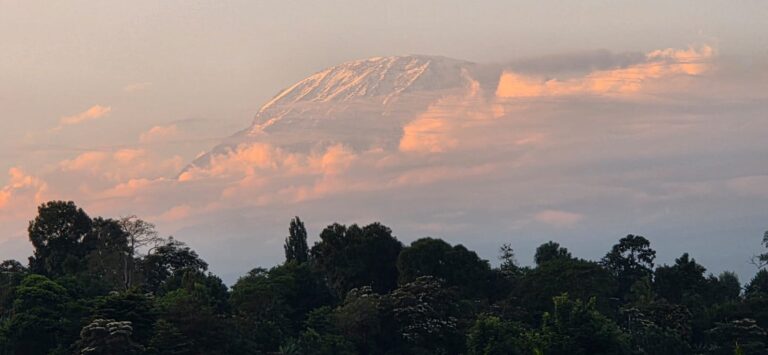
A warm voice calls out Karibu sana! – “You are most welcome!” Your Chagga guide leads you down a narrow path lined with avocado trees, to a small family coffee farm. Here, Arabica beans grow quietly, each cherry turning from hard green, to blushing yellow, to deep ruby red. It is harvest season, June through October, and the bushes are heavy with fruit. You reach out, plucking a ripe cherry – the skin sweet, the bean inside holding the promise of morning.
You’ll learn the stages of ripening:
Green cherries – unripe and bitter
Yellow blush – the first sign of sweetness developing
Deep red – perfectly ripe, bursting with natural sugars, ready for picking
The coffee comes to life over a wood fire, roasted in a pot until the air is thick with chocolatey aroma. You crush the beans with a wooden pestle, feeling their warmth in your hands, and then, in the soft chatter of the village, you sip a cup as rich and smooth as the land it came from.
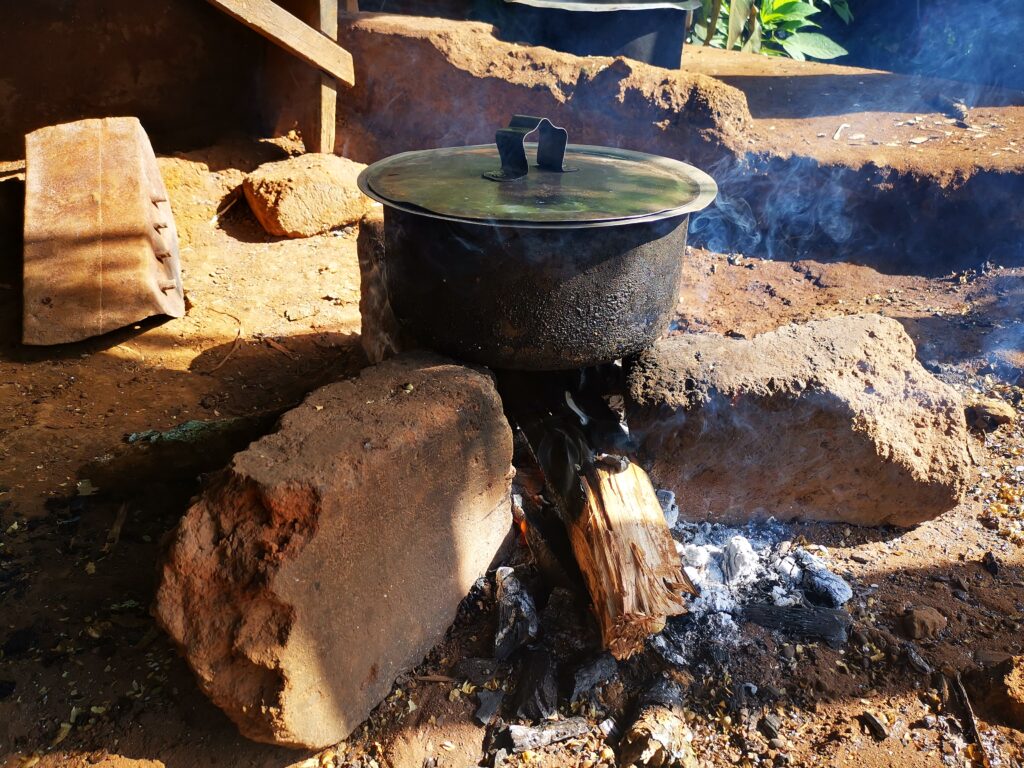
The trail to the waterfall begins behind the farm, winding through terraced banana plantations and maize fields. Birds sing overhead; the earth is damp beneath your shoes. You hear it before you see it — the roar of a 70-meter curtain of water crashing into a cold, clear pool. Mist cools your face as you stand in its spray, gazing up into the green-walled gorge. Here, the Chagga tell you, the mountain breathes.
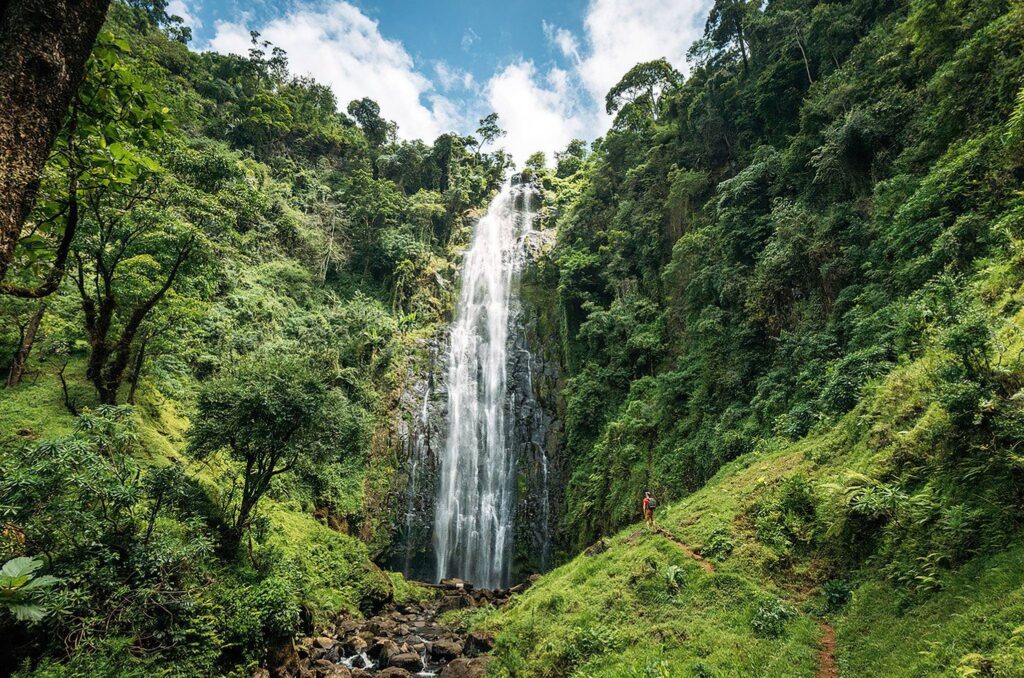
Back in the village, lunch waits in clay pots over glowing embers various of dishes from the home made chagga kitchen – machalari, a thick stew of green bananas and beef, simmered slowly with onions, tomatoes, and spices until the flavors become one.
This is the heart of Chagga homes: banana dishes, hearty and sustaining, served with laughter and stories.
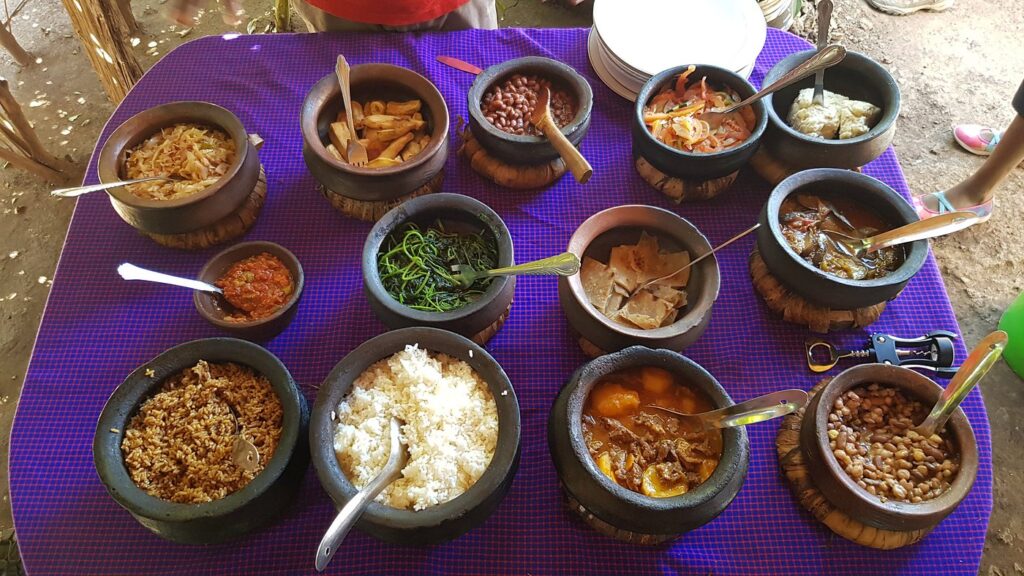
The afternoon begins with a sip of mbege, the Chagga’s traditional banana beer. Overripe bananas are boiled into a sweet mash, mixed with sprouted millet, and left to ferment until it hums with life. The taste is tangy, earthy, and meant to be shared.
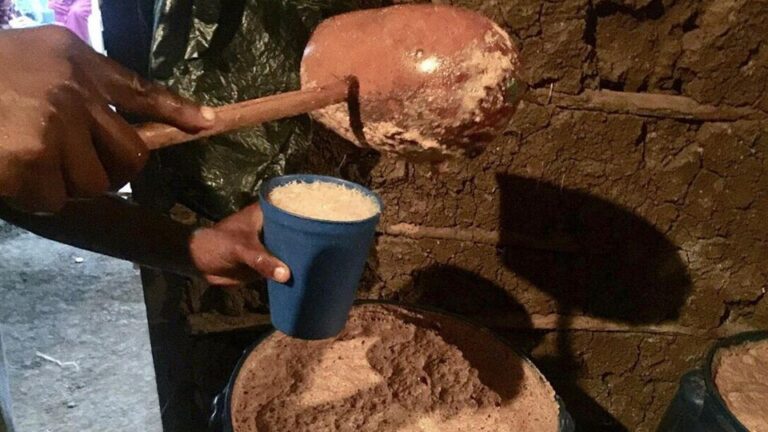
Banana Beer – The Village Brew
No visit is complete without tasting mbege, the traditional banana beer. It’s not like the bottled lagers you might know – this is a communal drink, slightly sweet, slightly sour, and deeply rooted in local custom.
How it’s made:
- Banana Ripening – Bananas are left in a warm, covered place until overripe.
- Banana Mash – The ripe bananas are peeled and mashed into a thick pulp.
- Cooking – The pulp is gently boiled with water to release its sugars.
- Fermentation Starter – Roasted finger millet is ground into flour and added to the cooled banana mash.
- Fermentation – The mixture is left in a large clay pot or bucket for 2–4 days to ferment naturally.
- Straining & Serving – The brew is strained through a grass or cloth filter, poured into cups, and shared among friends.
Mbege is more than a drink – it’s a conversation starter, a way to welcome guests, and a symbol of togetherness.
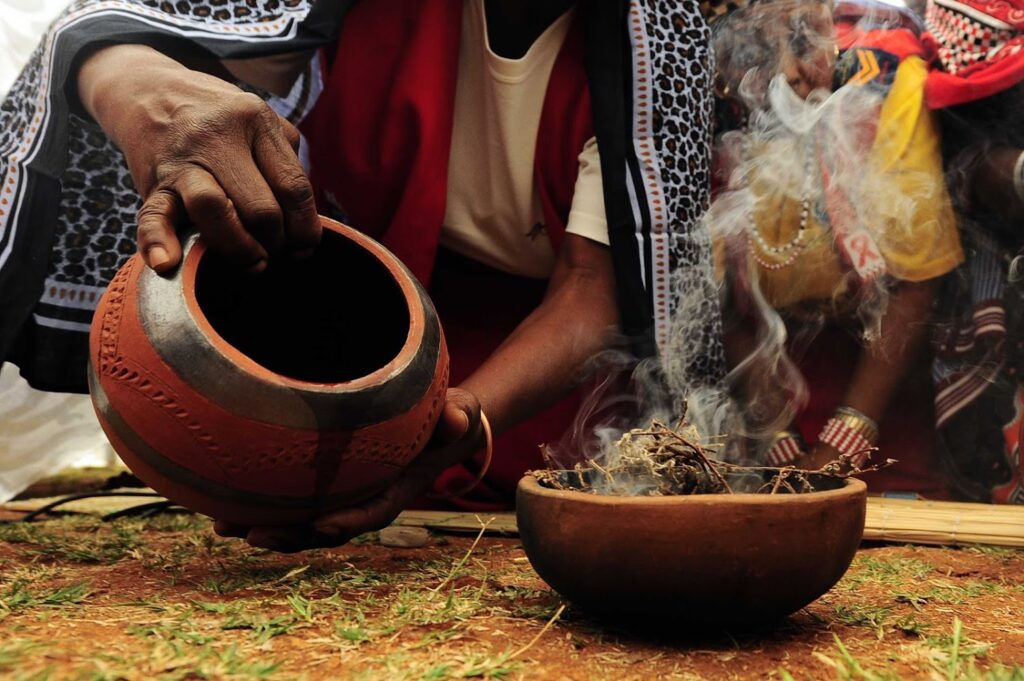
A traditional healer invites you into a shaded courtyard hung with drying herbs. In his hands, leaves, roots, and flowers become remedies – boiled guava leaves for a troubled stomach, neem leaves crushed into paste for skin ailments. These are not just medicines; they are pieces of ancestral wisdom.
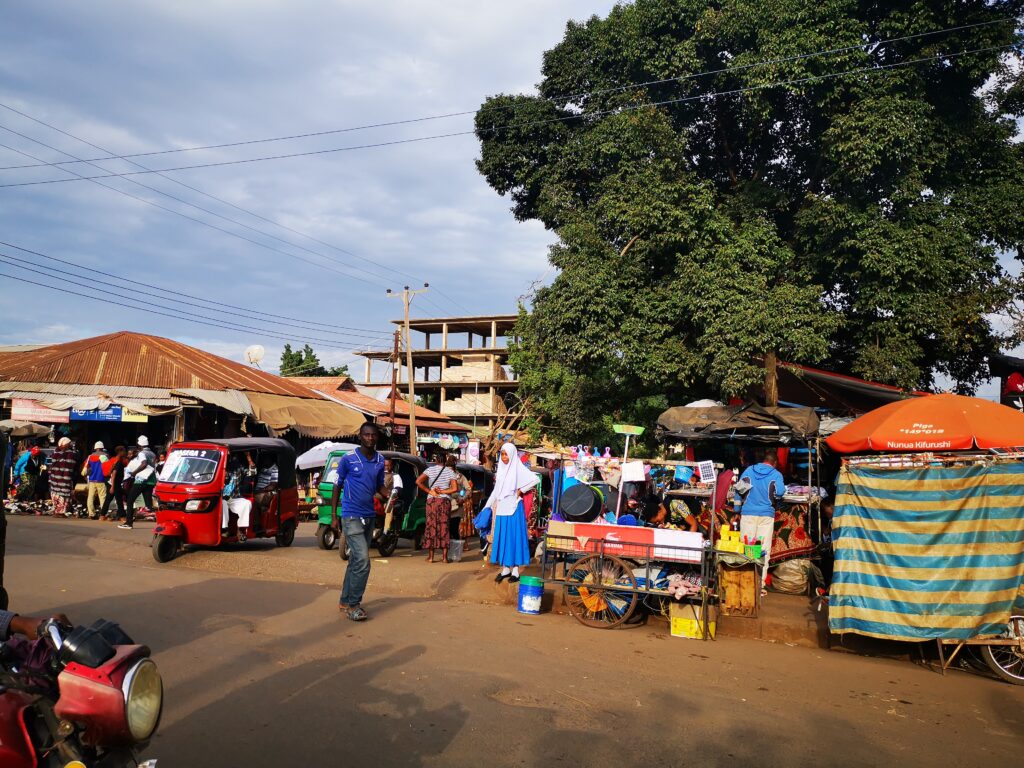
The day flows into the vibrant chaos of Kiboroloni Market in Moshi. This is no ordinary market – it is a living, breathing maze of color and sound. Pineapples stacked high in golden towers, sacks of red beans spilling onto the ground, the scent of cinnamon and cardamom drifting on the air. Traders from every corner of the Kilimanjaro region shout greetings, bargains are struck with a smile and a handshake, and music spills from small shops selling cassettes and mobile phone top-ups.
By late afternoon, you return to the lodge. The mountain glows in the setting sun, its slopes fading into the deep green of the village. Your final cup of coffee feels different now – no longer just a drink, but a taste of the land, the hands, and the stories that shaped it.
You came as a visitor.
You leave as a friend of Chagga land.
Karibuni sana!
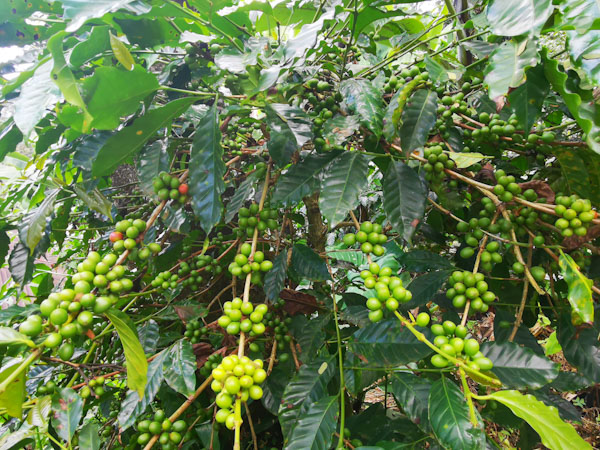
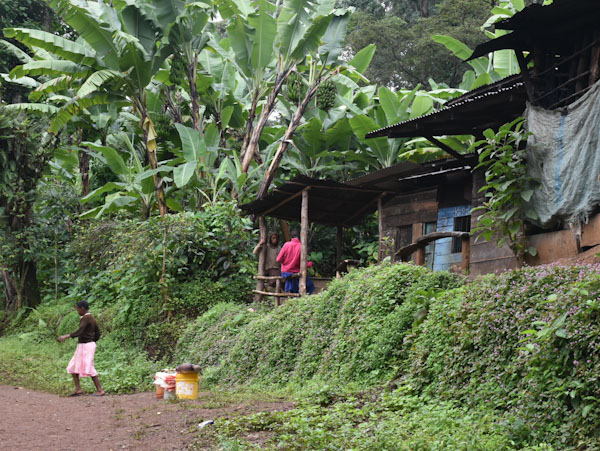
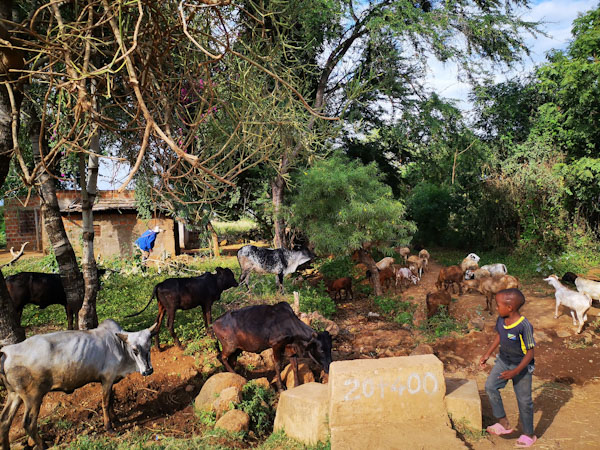
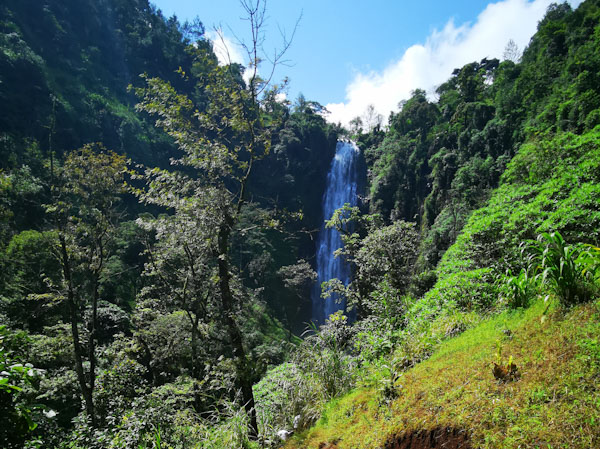
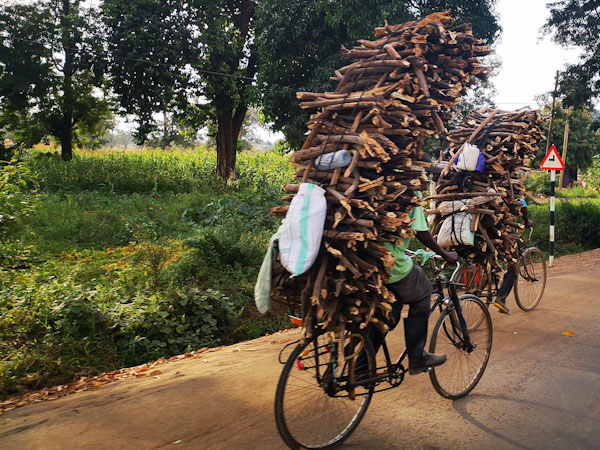
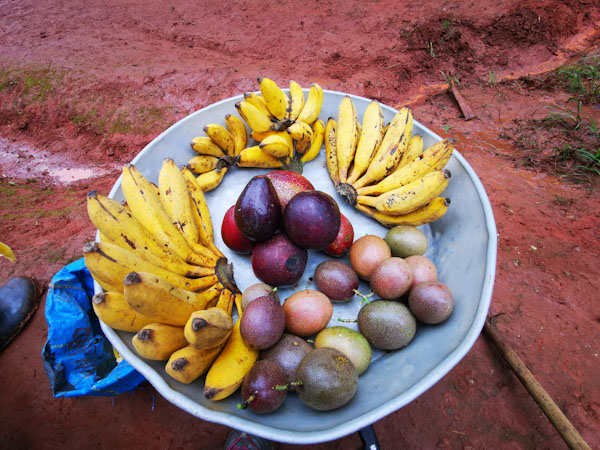
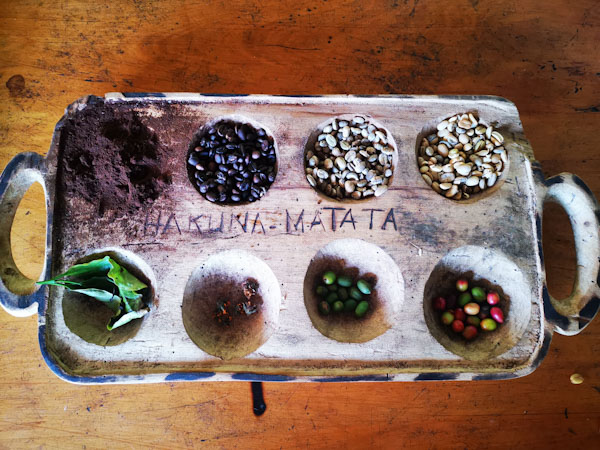
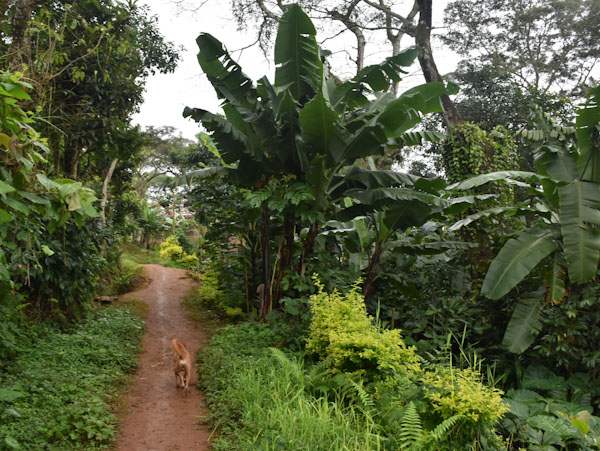
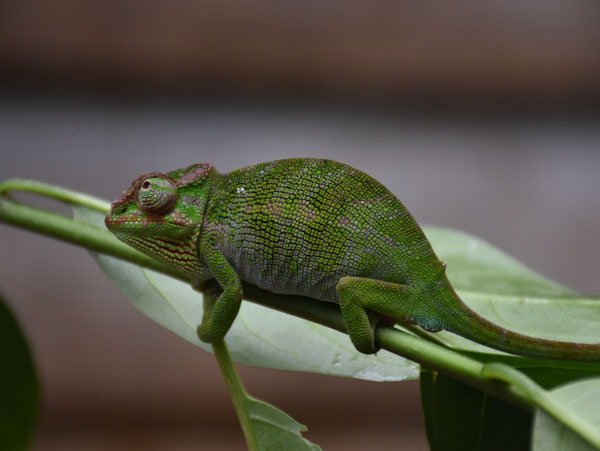
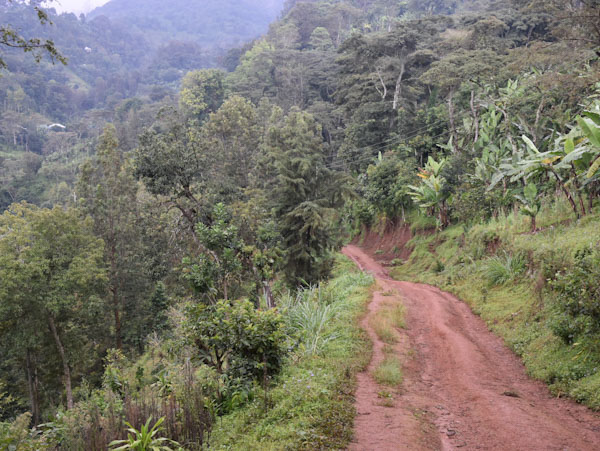
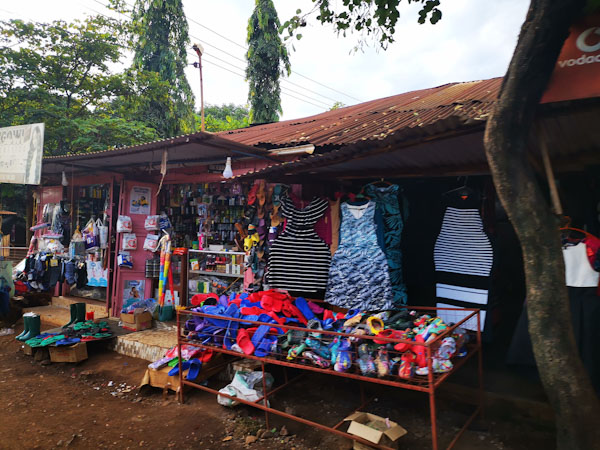
Inclusions:
- Local Chagga guide
- Coffee farm experience (picking, roasting, brewing)
- Guided waterfall hike
- Traditional Chagga lunch
- Mbege tasting
- Visit to traditional healer
- Guided Kiboroloni / Mbuyuni Market tour
- All entry fees & transport
Bring: Walking shoes, light jacket, reusable water bottle, camera, and a curious spirit.
